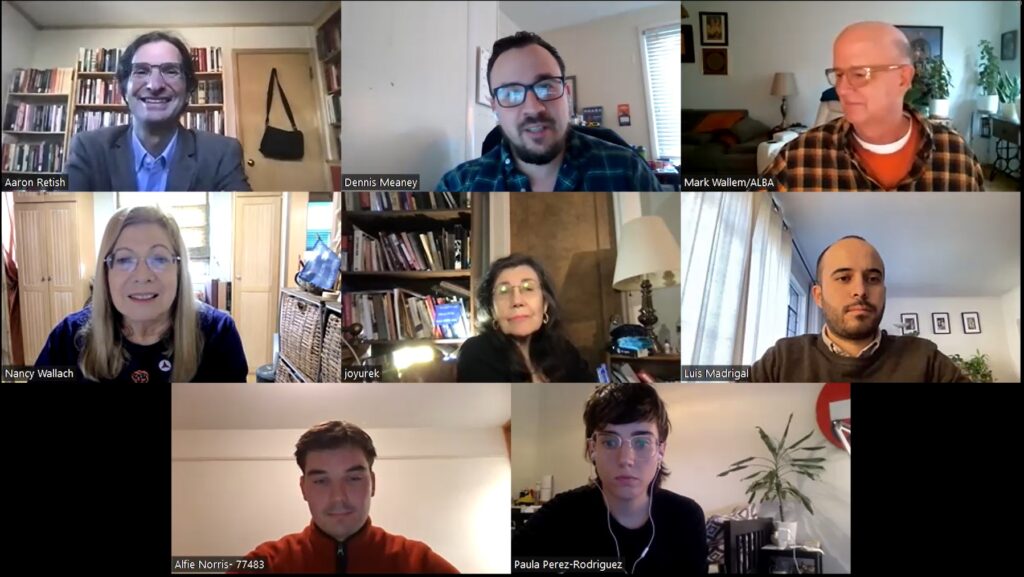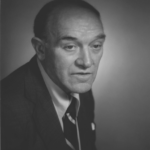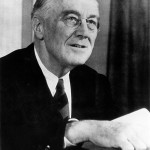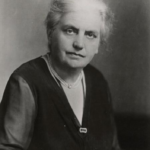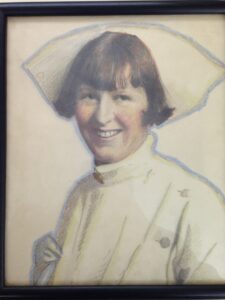Celebrating the 2022 Watt Prize Winners
Six students were recognized in this year’s George Watt Prize for their outstanding essays on the Spanish Civil War. The committee read through dozens of wonderful submissions from across the United States and Western Europe in what was, once again, a reminder of how many students appear interested in the Spanish Civil War.
Two outstanding students received the precollegiate award for their essays. Olinmazatemictli (Maza) Reyes of the Arizona School for the Arts described how Bernard Knox went from a committed soldier who fought fascism in the Spanish Civil War and World War II to becoming a renowned scholar of classics at Harvard. Ashwin Telang of West Windsor-Plainsboro High School South in New Jersey submitted a winning essay, “Policy Gone Wrong: U.S. Neutrality in the Spanish Civil War,” that examines the debate in the US government and among the public about the US government’s decision not to intervene in Spain.
The prize committee was thrilled this year to be able to meet with the recipients of the undergraduate and graduate awards. These four young scholars captivated the committee with presentations of their work. They spoke passionately about the larger implications of their scholarship and how they planned to develop their projects further. Rebecca Mundill (University of Manchester) presented “Reassessing the Humanitarian Activism of Eleanor F. Rathbone in the Spanish Civil War, 1936-1937,” which focuses on the political activism of Rathbone, who was a member of the British Parliament and a well-known defender of women’s rights. Mundill has graduated from Manchester and is planning on teaching in Spain. Alfie Norris (University of Leeds) told the committee how his research on his hometown of Wakefield’s “only” veteran of the Spanish Civil War, Frederick Spencer, ended up revealing that there were in fact five men from the city who fought in Spain. Alfie is now studying veterans from across the whole area of Leeds.
The graduate students’ projects were equally innovative. Paula Pérez-Rodríguez (Princeton University) joined us from Spain, where she is finishing her dissertation research. Her winning essay, “Reparto de armas espirituales: alfabización, socialismo y utopía letrada en la Guerra Civil Española,” is a study of the Republican Army’s literacy campaigns, which embodied Republicans’ views of culture and proper citizenship. Luis Madrigal (University of Chicago) presented his creative project, “Little Has Been Said: The Fredericka Martin Papers.” In this essay, Madrigal recalls how his high school teacher, Tobyanne Berenberg, introduced him to the story of her mother, Fredericka Martin. After serving as a volunteer in Spain fighting fascism, Martin continued the struggle in the United States and Mexico. Prompted by this story, Madrigal researched Fredericka Martin’s papers at the ALBA Collection at NYU’s Tamiment Library. The committee was captivated by Pérez-Rodríguez and Madrigal and looks forward to their future scholarly endeavors.
The jury for the 2022 George Watt Memorial Essay was comprised of Angela Giral (Columbia University), Joshua Goode (Claremont Graduate University), Jo Labanyi (New York University) Aaron Retish (Wayne State University), Josephine Yurek (New York City Public Schools), and Nancy Wallach (New York City Public Schools). The Watt award honors the memory of Abraham Lincoln Brigade veteran George Watt (1914-1994), a social worker, writer, and lifelong activist central to the creation of ALBA. The personal correspondence between George and Ruth Watt during the Spanish Civil War was recently staged by actors Vero Maynez and Nathan Payne. The performance and script can be found on the ALBA website.
What follows are summaries of the prize-winning projects; for links to the full text, visit the online edition of the Volunteer at albavolunteer.org.
Olinmazatemictli (Maza) Reyes (Arizona School for the Arts) “Bernard Knox: Soldier and Scholar”
The life of Bernard Knox is representative of the typical, ideologically driven volunteer in the International Brigades. A committed anti-fascist before war broke out in Spain, he snuck his way across the Spanish border to fight valiantly against General Franco, and he later used his hard-earned experience to fight the Axis in the Second World War. Also, like many brigaders, he eventually ended up laying down his weapons and enjoying the comfort of civilian life, becoming a renowned professor of Classics. Though today he is celebrated for his scholarly work, his heroism in the battle against fascism deserves remembrance from anyone with an interest in classic Western literature or the Spanish Civil War.
Ashwin Telang (West Windsor-Plainsboro High School South, New Jersey), “Policy Gone Wrong: U.S. Neutrality in the Spanish Civil War”
The Spanish Civil War sparked one of the largest debates among Americans of the time period. While some supported a position of neutrality — to isolate America from the Spanish conflict — others wanted to aid the Loyalist, democratic causes. President Franklin Roosevelt was pressured to follow the isolationist camp. In the end, his decision to isolate America from the war cost the Spanish Republic a victory. In effect, the U.S. posture of neutrality between 1936-39 inadvertently helped Francisco Franco establish himself as a fascist dictator. In fact, the Second World War could likely have been avoided had America aided the Loyalists. This essay analyzes the far-reaching consequences of U.S. neutrality during the Spanish Civil War and how it fundamentally changed the fabric of American foreign policy.
Undergraduate awards
Rebecca Mundill (University of Manchester) “Reassessing the Humanitarian Activism of Eleanor F. Rathbone in the Spanish Civil War, 1936-1937”
Eleanor Rathbone (London, 1872-1946) has been remembered by her associates and biographers for the many successes of her career in politics. Her dogged determination to provide humanitarian relief in the Spanish Civil War has been overshadowed by her work as leader of the National Union of Societies for Equal Citizenship (NUSEC), her campaign for Family Allowances and her humanitarian response to the Second World War. This thesis seeks to re-assess her work by focussing on her humanitarian activism in the Spanish Civil War. By studying Rathbone’s humanitarian activism between 1936-1937 in the Spanish Civil War from a gender perspective, this thesis aims to add an extra layer to Rathbone’s legacy. It shows how Rathbone differs from the image of humanitarian women who are driven solely by care and charity. By examining Rathbone’s devotion to public service, democracy and liberty combined with her unique position as a feminist and an Independent backbencher in the British parliament, this thesis reveals the true extent and motivations of Rathbone’s humanitarian activism in Spain.
Alfie Norris (University of Leeds). “I was born of working-class folks’ study of Wakefield International Brigade Volunteers and Forgotten Working-Class History”
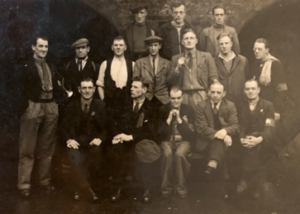
Frederick Spencer is the man with the flat cap on his knee seated to the left of the man with the cane.
My dissertation is an attempt to understand the motivations, and lives, of the five men who left my hometown of Wakefield, West Yorkshire, to fight in Spain. The work was inspired by the story of Frederick Spencer, who lived down the street from my high school and was killed at Jarama on 12 February 1937. His story had gone overlooked and originally, I believed he was the only volunteer from the area. My research soon showed that in fact five local men had fought in Spain. The story of the Wakefield volunteers shows how so much working-class history has been lost in the U.K., especially as regions such as my own have been affected by deindustrialization. The volunteers also represent local resistance to both local and international fascism. Using archival documents, photographs, and interviews with relatives, their stories now hold the place in history that they have long deserved. I hope that we will one day have a permanent physical memorial. This prize will provide much support and weight towards this, and I must thank ALBA for the inspirational work they do to promote the stories of the International Brigade, without which stories like mine in Wakefield would be so much harder to tell.
Graduate prizes
Paula Pérez-Rodríguez (Princeton) “Reparto de armas espirituales: alfabetización, socialismo y utopía letrada en la Guerra Civil Española”
Los procesos de educación y “culturización” de las masas durante la Guerra Civil han sido ampliamente estudiados. Así también, la tendenciosidad propagandística de las labores culturales y de los organismos socialistas en general y comunistas en particular. Combinando unas y otras observaciones, cabe preguntarse: ¿cuál fue la cualidad retórica de los propios procesos de alfabetización, su específica orientación discursiva, y de qué modo contribuyeron al esfuerzo socialista por conseguir la hegemonía política? El bando de los leales se dedicó no sólo a desarrollar intensas labores de alfabetización y de difusión cultural, sino a comunicar, a aquellos ya “culturizados”, el valor de esta empresa.
Este trabajo analiza los discursos que acerca de analfabetismo y alfabetización fueron elaborados durante la Guerra Civil Española desde el bando republicano, prestando especial atención a aquellos que se refieren a las filas del Ejército Popular. Por cuestiones de espacio y coherencia interna, me centro en los procesos de alfabetización de adultos y jóvenes, de corte comunista y socialista, hegemónicos durante 1937 y 1938, dejando fuera la retórica y las labores de corte anarquista, y la alfabetización infantil. Recabo por tanto artículos aparecidos en publicaciones como Ahora, La Hora, El Sol, Democracia Artillera, Solidaridad Obrera, La voz del combatiente, Libertad, La Libertad o Mundo gráfico, y recurro asimismo a la revista de la Inspección General de las Milicias de la Cultura, Armas y letras. Se comentan aquí, pues, procesos de alfabetización llevados a cabo, principalmente, por Milicias de la Cultura, aunque a menudo solapados con las actividades del Comisariado, Cultura Popular o el Socorro Rojo Internacional. El objetivo global de la investigación es comprender las contribuciones que los sueños de alfabetización tuvieron dentro de la resistencia republicana, y el papel que dichos sueños jugaron en su modelo de ciudadanía.
Luis Madrigal (University of Chicago) “Little Has Been Said: The Fredericka Martin Papers”
Fredericka Martin (1909-1992) was Head Nurse of the American Medical Bureau to Aid Spanish Democracy. In spirit, she was a member of the Abraham Lincoln battalion in the fight against fascism. On January 16, 1937, she sailed from New York aboard the SS Normandie, headed for the crumbling old world. “Aware that I was participating in the pivotal event of our century,” she wrote years later, “I managed to guard many records and keep notes for some future historian –I hoped—to use.” This essay gleans from those notes, kept in the Tamiment Library at New York University, a sketch of Martin’s life and the project she could never bring herself to finish: a book about the experiences of the war, a collection of testimonies from “nurses, the ambulance and lorry drivers, the social workers, administrators, pharmacists, and lab technicians.” It also draws upon the personal relationship between the author and Martin’s daughter, Tobyanne Berenberg, a retired Geography professor living in Mexico City who keeps the memory of her mother very much alive.

